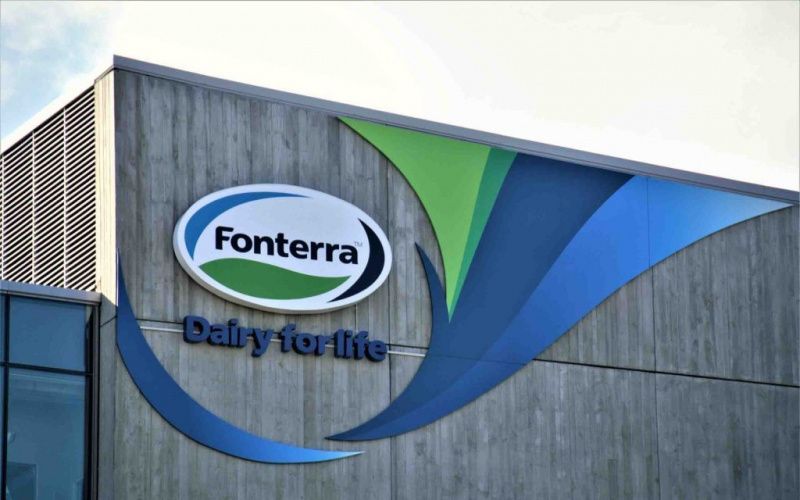'Trees for Cheese' Plant Fonterra's has officially transitioned to running entirely on renewable energy
In a groundbreaking move towards sustainability, the world's largest dedicated cheese factory, Stirling cheese factory in South Otago, has officially transitioned to running entirely on renewable energy.

This significant shift not only underscores Fonterra's commitment to eco-friendly practices but also positions Stirling as a pioneer in the company's journey towards a greener future.
The $33 million project, aptly named "Trees to Cheese," kicked off in 2019 as a replacement for the coal-fired boiler, symbolizing Fonterra's dedication to reducing its carbon footprint. Despite facing delays due to the challenges brought on by the COVID-19 pandemic, the facility was commissioned last April and celebrated its formal opening today.
Chris Kane, Fonterra's Director of Technical Excellence, highlighted that Stirling is now the first Fonterra plant to rely solely on renewable energy. However, he noted that work is still needed to replace coal dependency in four South Island plants - Clandeboye, Darfield, Studholme, and Edendale - a process that will unfold gradually, considering the best available options.
The next step in this green initiative involves installing an electro-boiler at the Edendale plant, a move expected to reduce emissions by an impressive 20%. Kane emphasized that diverse options for decarbonization are being explored, reinforcing Fonterra's commitment to sustainable practices.
Anna Palairet, Fonterra's Acting Chief Operating Officer, expressed the cooperative's goal to eliminate the use of coal entirely by 2037. This aligns with Fonterra's broader mission to halve Scope 1 and 2 emissions by 2030 and achieve net-zero emissions by 2050. Palairet emphasized that customer expectations and the urgent need to address climate change make these changes not only environmentally responsible but also crucial for business success.
Morgan Watt, Stirling's Operations Manager, shed light on the plant's current energy requirements, stating that it now relies on 252 million cubic meters of biomass daily, delivered from Kennington near Invercargill. This sustainable approach has not only made the plant quieter but has also significantly reduced environmental impact, producing only 4 tons of biomass ash residue per month compared to the previous 9 tons of coal ash.
As the world's largest dedicated cheese manufacturing facility, Stirling produces a staggering 10,500 20kg blocks of cheese daily, totaling 56,500 tons annually. In a symbolic move towards sustainability, the disused coal plant is being sold for scrap, marking the end of an era and a bold step into a greener future for Fonterra.
The $33 million project, aptly named "Trees to Cheese," kicked off in 2019 as a replacement for the coal-fired boiler, symbolizing Fonterra's dedication to reducing its carbon footprint. Despite facing delays due to the challenges brought on by the COVID-19 pandemic, the facility was commissioned last April and celebrated its formal opening today.
Chris Kane, Fonterra's Director of Technical Excellence, highlighted that Stirling is now the first Fonterra plant to rely solely on renewable energy. However, he noted that work is still needed to replace coal dependency in four South Island plants - Clandeboye, Darfield, Studholme, and Edendale - a process that will unfold gradually, considering the best available options.
The next step in this green initiative involves installing an electro-boiler at the Edendale plant, a move expected to reduce emissions by an impressive 20%. Kane emphasized that diverse options for decarbonization are being explored, reinforcing Fonterra's commitment to sustainable practices.
Anna Palairet, Fonterra's Acting Chief Operating Officer, expressed the cooperative's goal to eliminate the use of coal entirely by 2037. This aligns with Fonterra's broader mission to halve Scope 1 and 2 emissions by 2030 and achieve net-zero emissions by 2050. Palairet emphasized that customer expectations and the urgent need to address climate change make these changes not only environmentally responsible but also crucial for business success.
Morgan Watt, Stirling's Operations Manager, shed light on the plant's current energy requirements, stating that it now relies on 252 million cubic meters of biomass daily, delivered from Kennington near Invercargill. This sustainable approach has not only made the plant quieter but has also significantly reduced environmental impact, producing only 4 tons of biomass ash residue per month compared to the previous 9 tons of coal ash.
As the world's largest dedicated cheese manufacturing facility, Stirling produces a staggering 10,500 20kg blocks of cheese daily, totaling 56,500 tons annually. In a symbolic move towards sustainability, the disused coal plant is being sold for scrap, marking the end of an era and a bold step into a greener future for Fonterra.
Key News of the Week











